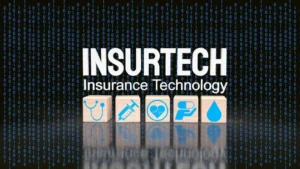The insurance industry is no longer solely characterized by extensive documents, exorbitant wait periods, and policies that offer little to no flexibility. With new developments in technology, insurance is evolving to not only become smarter, but also more personalized, and, surprisingly, cheaper. From AI to smart wearables, new technological innovations are changing how policies are developed, priced, and administered. These advances are not only helping the insurance companies but also making life easier for the policyholders. We will delve into seven notable methods in this article on how insurance technology is transforming the industry with smarter and more economical policies.
Data Analytics for Individualized Insurance:
These are no longer the times for one-size-fits-all insurance policies. Insurers can design great plans with corresponding policies tailored to specific requests and needs due to data analytics. Companies can evaluate risks more accurately by analyzing data from different channels, including social media, driving patterns, and even health records. Safe drivers, for example, can enjoy lower auto insurance premiums while health-conscious individuals may receive life insurance discounts. This level of customization enables customers to pay only for exactly what they require, making policies smarter and more financially savvy.
Usage-Based Insurance with Telematics:
Telematics is changing the entire paradigm of auto insurance. Insurers are now able to provide usage-based policies according to driving behavior, including metrics like speed, braking, and mileage. With lower premiums offered to safe drivers, motorists have an incentive to change risky habits Indeed, driving is much safer and customers are charged based on accurate sage. For both insurers and policyholders, telematics serves as a win-win. This technology makes auto insurance more cost-effective and dynamic.
AI-Powered Claims Processing:
The procedure for filing an insurance claim was in the past tedious and time-consuming. This is, however, no longer the case due to the advent of artificial intelligence. There has been an emergence of AI-powered systems capable of reasoning through data, fraud detection, approval automation, and processing claims in a matter of minutes. Some insurers even grant instant payouts for minor claims. This level of efficiency lowers costs for administrators, which is advantageous for companies and customers alike due to lower premiums. Moreover, AI guarantees fairness and accuracy in handling claims, which improves the customer experience.
Insurance Transparency and Efficiency Through Blockchain Technology:
Blockchain technology is transforming the insurance industry by introducing unprecedented transparency and improved efficiency. Using blockchain, a secure and tamper-proof ledger is created for each transaction. All records can be efficiently processed, stored, and retrieved, which is convenient for all parties involved. Claims, payments, and even policy execution can be automated with smart contracts, which eliminates the use of intermediaries. Consequently, costs and wait times associated with policies are cheaper for the insurance customer. In addition, trust is enhanced due to the transparent nature of blockchain, which indisputably records every interaction.
Wearable Technology in Health Monitoring:
Smartwatches and fitness trackers are now commonplace wearable devices that are impacting the health insurance industry. By tracking physical activity, heart rate, and sleep, these devices capture insightful data that can be used to encourage healthy living through discounts on their policies. Discounting insurance premiums aids policyholders financially, while insurers financially benefit by avoiding unnecessary claims through promoted preventive care. Wearable technology showcases how insurance can leverage technology for smarter and more efficient solutions.
IoT and Smart Home Devices:
Today, insurance companies are using the Internet of Things (IoT) technology to improve their services by providing home insurance tailored to IoT devices. Smart home devices like cameras, smoke detectors, and leak detectors can help prevent accidents and mitigate claim filing. To offset the damage or theft risk IoT devices impose, insurers are offering free discounts to homeowners who install these devices. Apart from making homes, IoT-enabled IoT devices also ensure that customers save on their insurance costs. It is a form of innovation that helps both the insurers and the policyholders.
Virtual Assistants and Chatbots for Customer Service:
Insurance customer service is evolving rapidly due to the development of chatbots and virtual assistants. Equipped with AI technology, chatbots can deal with a wide array of functions, from answering policy-specific queries to assisting customers with claim-filling processes. Chatbots can attend to simple inquiries any time of the day or night, meaning that there is no need for customers to spend hours on the phone or go to an office during business hours. For insurers, operational costs drop significantly, and this is passed down to customers in the form of lower premiums. Customers are guaranteed to have timely and correct information provided to them, which improves customer satisfaction.
Conclusion:
Insurance technology is advancing to the advantage of both companies and their clients. New policies are emerging that are more affordable and smarter than ever before due to personalized policies, insurance based on usage, AI claims processing, and transparent blockchain systems. Chatbot technology is advancing customer service, and wearables coupled with the Internet of Things (IoT) are encouraging healthier living and creating safer environments. The insurance industry will become more efficient and transparent as technology evolves, encouraging a stronger focus on the client. Customers looking for lower premiums or better coverage will need to adopt these technologies to acquire cheaper and smarter insurance solutions.
FAQs:
1. How does data analytics make insurance cheaper?
Using data analytics, insurers can evaluate risks more accurately and offer tailored policies, ensuring every customer pays only for the coverage they need.
2. What is usage-based insurance?
It is a form of insurance where rewards are based on driving behavior, allowing low premiums for safe drivers based on their actual usage.
3. How does AI improve claims processing?
AI systems improve the cost and efficiency of the process by automatically analyzing data, identifying fraud, and paying out minor claims instantly.
4. What role does blockchain play in insurance?
Blockchain improves the transparency and efficiency of insurance by allowing for the creation of secure records that can’t be changed and enabling smart contracts for automated claims processing.
5. In what ways do health insurance policies change with the use of wearable gadgets?
Wearable devices enable insurers to obtain relevant health information, utilize it to encourage healthy behavior, and reward or give policyholders discounts based on their fitness level.




